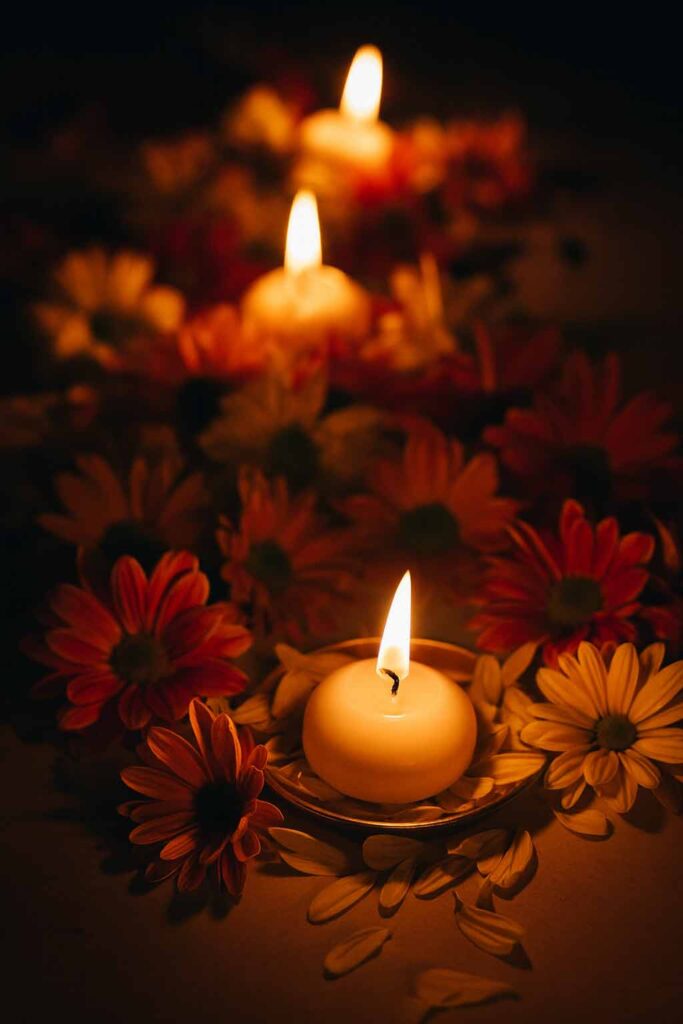Diwali (October–November)
The Festival of Lights, Joy, and New Beginnings

Diwali, also known as Deepavali, is one of the most celebrated and cherished festivals in India, symbolizing the victory of light over darkness, good over evil, and knowledge over ignorance. The word Deepavali comes from the Sanskrit words deepa (lamp) and avali (row), meaning a “row of lights.” This radiant festival illuminates homes, streets, and hearts with its glow, spreading warmth, happiness, and hope. Falling in the Hindu month of Kartika (October or November), Diwali is celebrated with grandeur and devotion across India and by Indian communities worldwide. The festival typically spans five days, each carrying unique spiritual significance, and is observed by people of various faiths, including Hindus, Jains, Sikhs, and Buddhists, each interpreting it through their own cultural and religious lens.
The origin and legends of Diwali are as diverse as India itself, with different regions celebrating the festival for different reasons. In northern India, Diwali marks the return of Lord Rama to Ayodhya after a 14-year exile and his victory over the demon king Ravana. To celebrate his return, the people of Ayodhya lit rows of oil lamps, symbolizing the triumph of righteousness and the dispelling of darkness. In southern India, the festival commemorates Lord Krishna’s victory over the demon Narakasura, representing the victory of divine truth over arrogance and evil. In western India, particularly Gujarat, Diwali also marks the start of a new financial year, when businesses close old accounts and open new ledgers, praying to Goddess Lakshmi for wealth and prosperity. For Jains, Diwali marks the day when Lord Mahavira attained nirvana, while Sikhs celebrate it as Bandi Chhor Divas, the day Guru Hargobind Ji was released from imprisonment. Despite these diverse stories, the core message of Diwali remains the same—renewal, hope, and the triumph of light.
The preparations for Diwali begin weeks in advance. Homes and workplaces are thoroughly cleaned, painted, and decorated to welcome prosperity and positivity. People adorn their homes with colorful rangoli designs, diyas (oil lamps), and string lights, creating an enchanting sight after sunset. The fragrance of freshly prepared sweets like laddus, barfis, and halwas fills the air, while markets bustle with people shopping for new clothes, gifts, and festive delicacies. The lighting of diyas is not only a visual delight but also a spiritual act—signifying the removal of ignorance and the awakening of inner wisdom. Families come together to perform Lakshmi Puja on the main day of Diwali, offering prayers to Goddess Lakshmi, the deity of wealth and prosperity, and Lord Ganesha, the remover of obstacles, for peace and success in the year ahead.
Diwali is also a time for sharing and giving, fostering social harmony and compassion. People visit friends and relatives to exchange sweets and gifts, reinforcing bonds of love and friendship. In many parts of India, fireworks light up the night sky, adding color and sparkle to the celebrations. However, in recent years, there has been a growing awareness about the environmental and health effects of excessive fireworks, leading to campaigns promoting a “Green Diwali.” Many communities now celebrate with eco-friendly diyas, natural decorations, and minimal noise, embracing the true spirit of the festival—joy without harm.
Beyond its external beauty, Diwali carries a deep philosophical and spiritual message. The lighting of lamps signifies the illumination of the mind and soul, urging individuals to replace ignorance with wisdom, hatred with love, and despair with hope. It reminds people that darkness is temporary and can be overcome by perseverance and positivity. The festival also encourages introspection and gratitude—thanking the divine for blessings received and seeking strength to overcome life’s challenges. In this sense, Diwali is not just an external celebration but an inner awakening.
In modern times, Diwali has become a global festival, celebrated in cities like London, New York, Singapore, and Sydney, where landmarks are lit up to honor the occasion. It brings together people of all backgrounds to celebrate unity, harmony, and cultural richness. The festival’s universal themes of renewal, hope, and light resonate across cultures and faiths, making it one of the most beloved celebrations in the world.
Ultimately, Diwali is more than a festival—it is a way of life. It reminds us to nurture the light within ourselves, to spread kindness, and to overcome adversity with courage and faith. As the flickering lamps illuminate homes and hearts, Diwali inspires everyone to embrace new beginnings, celebrate togetherness, and keep the flame of goodness burning bright. Whether celebrated with grandeur in bustling cities or with simplicity in small villages, the spirit of Diwali unites millions in a shared message of joy, peace, and love—a reminder that light, in all its forms, will always conquer darkness.
